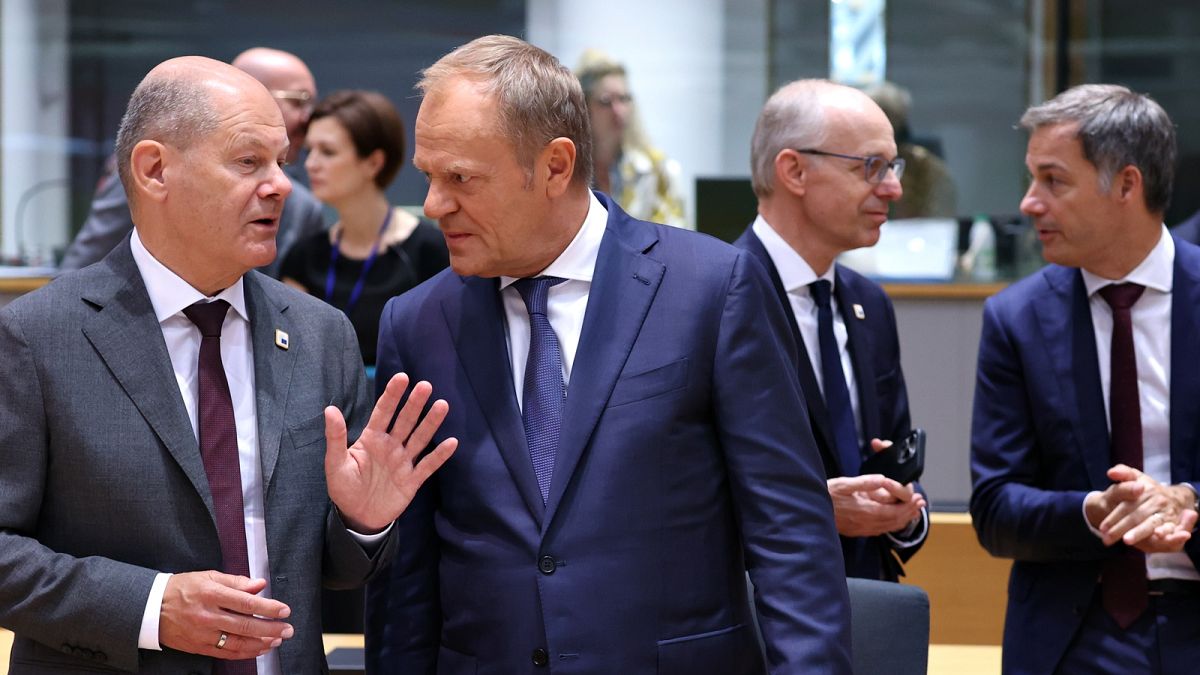The upcoming leaders’ summit in Brussels will address a variety of pressing issues, including migration policy, support for Ukraine, and the situation in the Middle East. Migration is expected to be a key point of discussion, with calls for offshoring asylum procedures and expedited deportations becoming more pronounced. Despite concerns from NGOs about potential violations of fundamental rights, there is growing pressure for action to address irregular border crossings and asylum claims. However, the issue of deportations within the EU has been challenging due to various legal, administrative, law enforcement, and diplomatic obstacles. The bloc has struggled with successful deportations, with only a 20-30% success rate, prompting calls for new strategies.
One proposed solution that has gained traction is the establishment of “return hubs” outside the EU, where migrants whose asylum applications have been denied would wait for the deportation process to be completed. This proposal, put forward by a coalition of 15 member states, aims to streamline the deportation process and deter irregular migration. The idea of offshoring migration policies has also been floated, including the rescue of migrants at sea and processing their asylum claims in non-EU countries. Despite the lack of specific details on these proposals, there is a growing consensus among some EU states on the need for innovative solutions to address migration challenges.
European Commission President Ursula von der Leyen has endorsed the idea of “return hubs” in a letter to EU leaders, emphasizing the importance of effective deportations for a sustainable migration policy. However, there are still significant disagreements among member states on this issue, with Spain, Germany, France, Belgium, and Sweden supporting the migration reform agreed upon in May, while Hungary and Poland remain opposed. Poland has even proposed a temporary suspension of the right to asylum in response to the influx of migrants pushed by Belarus, a move that has raised concerns about potential violations of EU and international law.
The push to offshoring migration policies amid rising far-right sentiment, electoral frustrations, and overloaded reception centers has sparked alarm among humanitarian organizations. These organizations fear that such proposals could undermine the asylum process, result in unfair decisions, and lead to violations of fundamental rights. The recent actions by some EU countries, including Germany reintroducing border controls and Hungary threatening to bus migrants to Belgium, have further intensified concerns about the erosion of international protection standards. Amid these developments, discussions on ongoing support for Ukraine and challenges related to funding initiatives are also expected to be on the agenda at the leaders’ summit in Brussels.











